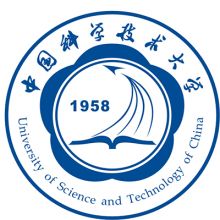As China goes ahead with admissions for the academic year beginning in September, 36 universities have been given leeway to hold special courses and offer other incentives to entice elite undergraduates into fields deemed important for the country’s “significant strategic demands”.
The top five Chinese institutions in the Times Higher Education World University Rankings − Tsinghua University, Peking University, the University of Science and Technology of China, Zhejiang University and Fudan University − will participate in the initiative, according to an announcement from the Education Ministry.
One goal is to drive talented high school students into the fundamental sciences and basic research, with mathematics, physics, chemistry and biology all covered in the initiative. The pilot programme will also focus on boosting high-end computer chip production, software, smart technologies, new materials, advanced manufacturing and state security. In addition, it will cover some humanities subjects such as history, philosophy and ancient Chinese.
Fields seen as being more lucrative and popular, such as business, management, medicine and engineering, are notably absent from the initiative.
The changes will take place under the Qiangji plan, also known as the Strong Base Plan, which the Education Ministry announced in January. The selected students will be given advantages in obtaining scholarships, mentorships and graduate school recommendations, but will also be more constrained in ability to change major.
The Chinese premier, Li Keqiang, said at an event in January that a weakness in basic research was one reason the country lagged in innovation. He promised improved assessments and increased financial support so researchers could work unimpeded. “We need to respect rules and tolerate failures so that our researchers can roam freely and try daringly,” state media quoted him as saying.
The plan involves changes to some admissions assessments. It will do away with “independent admissions”, a 2003 initiative that was meant to allow universities to select elite high school students but was plagued by allegations of inequity and fraud. The Qiangji plan will revert to relying largely on the gao kao, the national college entrance exam, which will now go ahead in July, despite an earlier delay caused by the Covid-19 pandemic.
Tsinghua will have five new academies offering 11 majors for students willing to enter “strategic fields”. Zhejiang University will take 210 students, studying 10 majors, at its Chu Kochen Honours College, while the University of Science and Technology has places for 210 students across nine majors, the South China Morning Post reported.
Register to continue
Why register?
- Registration is free and only takes a moment
- Once registered, you can read 3 articles a month
- Sign up for our newsletter
Subscribe
Or subscribe for unlimited access to:
- Unlimited access to news, views, insights & reviews
- Digital editions
- Digital access to THE’s university and college rankings analysis
Already registered or a current subscriber? Login










